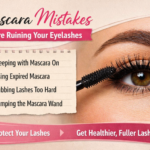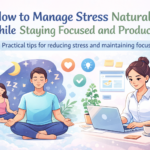Acne is a common skin condition that affects people of all ages, and it can be frustrating when breakouts occur. Whether you’re dealing with occasional pimples or chronic acne, there are several proactive steps you can take to reduce the likelihood of breakouts and keep your skin looking clear and healthy. In this article, we’ll explore 8 pro tips to help you prevent acne and maintain smooth, glowing skin.
1. Keep Your Skin Clean, But Don’t Overdo It
One of the most important steps in acne prevention is maintaining a clean face. However, it’s essential to strike a balance — too much cleaning can irritate the skin and worsen acne.
Why is this important? Excess oil, dirt, sweat, and makeup can clog pores, leading to acne breakouts. Washing your face twice a day with a gentle cleanser helps remove these impurities. But washing your face more than twice can strip the skin of its natural oils, which can increase oil production and potentially worsen acne.
Pro tip: Use a mild, non-comedogenic (non-pore clogging) cleanser suited to your skin type. If you have oily skin, look for a gel-based cleanser. If you have dry skin, a cream-based or hydrating cleanser may work better for you. Always wash your face before bed to remove makeup, pollutants, and other impurities.
2. Keep Your Hands Off Your Face
Touching your face frequently can transfer dirt, oil, and bacteria from your hands to your skin, increasing the risk of breakouts. Many people unknowingly touch their face while working, resting, or even sleeping, which can lead to acne.
Why is this important? When you touch your face, you transfer oils and bacteria from your hands to your skin. This can clog pores and lead to inflammation and breakouts. Avoid leaning your face on your hands or touching your face throughout the day.
Pro tip: Be mindful of your habits, and try to keep your hands away from your face as much as possible. If you need to touch your face, make sure your hands are clean by washing them thoroughly first. This small habit change can significantly reduce the risk of breakouts.
3. Choose Non-Comedogenic Skin Products
Not all skincare products are made the same. Some products, particularly those that contain heavy oils or other pore-clogging ingredients, can contribute to acne development. Choosing the right skincare products for your skin type is crucial in preventing breakouts.
Why is this important? When products are labeled as “non-comedogenic,” it means they are formulated not to clog pores. Using these products helps minimize the chances of acne. On the other hand, using products that contain ingredients like mineral oils, lanolin, or certain alcohols can make acne worse.
Pro tip: Always choose makeup, moisturizers, and sunscreens that are labeled “non-comedogenic.” These products are designed to be gentle on the skin and reduce the risk of clogged pores. Additionally, opt for products designed for your skin type — whether oily, dry, or combination skin.
4. Exfoliate Regularly (But Gently)
Exfoliating your skin can help remove dead skin cells, which can accumulate and clog pores, leading to breakouts. However, it’s essential to exfoliate with care. Over-exfoliation can cause irritation, leading to inflammation and worse acne.
Why is this important? Dead skin cells that don’t shed properly can clog pores, causing pimples and blackheads. Exfoliating regularly ensures that your skin is free of these impurities, keeping your pores clear. However, aggressive scrubbing can cause micro-tears in the skin, worsening acne and irritating sensitive skin.
Pro tip: Exfoliate your skin once or twice a week using a gentle exfoliant. Look for products with mild exfoliating agents, such as alpha hydroxy acids (AHAs) or beta hydroxy acids (BHAs). If you have sensitive skin, choose a chemical exfoliant over a physical scrub, as it’s gentler on the skin.
5. Stay Hydrated and Eat a Balanced Diet
Your skin’s health is closely tied to your overall health. Drinking enough water and maintaining a balanced diet rich in vitamins and minerals is essential for keeping your skin clear and preventing acne.
Why is this important? Hydration helps your skin maintain its elasticity and overall function. When you’re dehydrated, your skin can become dry and irritated, potentially leading to an increase in oil production and clogged pores. Additionally, a diet high in processed foods, sugary snacks, and dairy products has been linked to an increased risk of acne breakouts.
Pro tip: Drink plenty of water throughout the day to keep your skin hydrated and your body functioning well. Aim for a balanced diet that includes plenty of fruits, vegetables, whole grains, and lean proteins. Foods rich in vitamins A, C, E, and zinc can help promote clear skin and support your body’s ability to fight inflammation.
6. Use Sunscreen Every Day
Exposure to the sun’s harmful UV rays can damage the skin and exacerbate acne. Some acne treatments can also make your skin more sensitive to the sun, increasing the risk of sunburn and irritation.
Why is this important? Sun exposure can cause inflammation and redness, making acne worse. Moreover, sunburns and excessive exposure to UV rays can lead to long-term skin damage, including premature aging and skin cancer.
Pro tip: Make sunscreen a part of your daily skincare routine, even on cloudy days or when you’re indoors. Choose a broad-spectrum sunscreen with an SPF of 30 or higher. If you have acne-prone skin, opt for a non-comedogenic sunscreen to avoid clogging your pores.
7. Manage Stress Levels
Stress is one of the most common triggers for acne. When you’re stressed, your body produces more of the hormone cortisol, which can increase oil production in the skin and lead to clogged pores and breakouts.
Why is this important? Chronic stress can exacerbate acne and other skin conditions. Stress increases cortisol levels, which in turn triggers the sebaceous glands to produce more oil. This excess oil can clog pores, leading to acne flare-ups.
Pro tip: Take steps to manage stress in your life through relaxation techniques such as deep breathing, yoga, meditation, or exercise. Regular physical activity helps regulate stress hormones and can also improve your overall skin health. Prioritizing sleep and taking breaks throughout the day to relax can also help keep your skin in balance.
8. Seek Professional Treatment When Necessary
While home skincare routines can go a long way in preventing acne, sometimes breakouts are persistent and require professional help. Dermatologists can provide personalized advice and treatments that are tailored to your specific skin concerns.
Why is this important? If you’re dealing with severe acne or acne that doesn’t respond to over-the-counter products, a dermatologist can help. They can prescribe topical treatments, oral medications, or advanced treatments such as chemical peels or laser therapy to reduce acne and prevent future breakouts.
Pro tip: If you’ve tried multiple over-the-counter products and haven’t seen improvements, it may be time to consult a dermatologist. They can assess your skin type and recommend the most effective treatments for your condition. Professional care can help you manage acne more effectively and prevent future flare-ups.
Conclusion
Preventing acne breakouts requires a combination of good skincare habits, a healthy lifestyle, and sometimes professional treatment. By following these 8 pro tips — keeping your skin clean, choosing non-comedogenic products, exfoliating gently, staying hydrated, protecting your skin from the sun, managing stress, and seeking professional help when necessary — you can significantly reduce your risk of acne and maintain clearer, healthier skin. Remember, consistency is key, and it may take some time to see results. But with the right approach, you’ll be on your way to smoother, clearer skin in no time!







